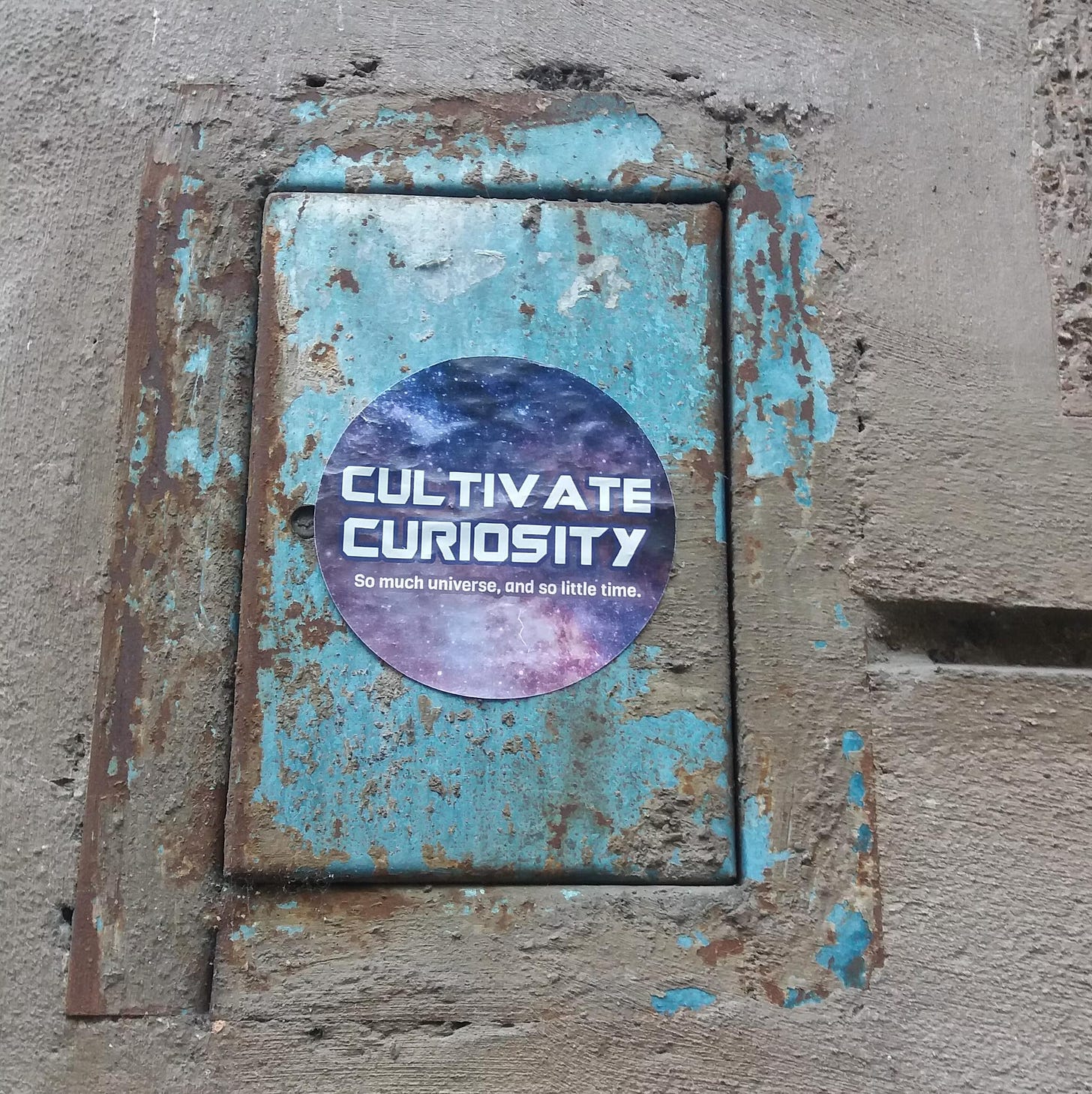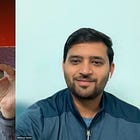Don’t Box Your Curiosity
Four Myths That Stop Us From Learning
Until a few years ago, space exploration — and even science in general — wasn’t something I thought much about. I knew NASA had big plans, and every now and then, a major discovery would make the headlines. But it all felt distant.
My initial curiosity about space came from my family’s general interest in science. And that curiosity was reaffirmed through my engineering course work. I understood enough to nod along in basic conversations — but would probably nod off if things got too technical.
Then one day, something changed.
While boarding a short flight, I caught a glimpse of the cockpit and something clicked. I thought about how far we’ve come as a species: from the Wright brothers’ first flight in 1903 to supersonic jets, space shuttles, and astronauts walking on the Moon. That moment planted a seed of curiosity.
Suddenly, space didn’t seem so distant after all.
I wanted to understand the science underpinning the progress of human spaceflight. Learn more about people who have contributed to this progress and finally what impact space missions have had on us. Eventually, I wanted to share that interest with others by writing about it. Especially writing about topics that I wanted to learn more about. Like the Voyager spacecrafts and why everyone should care a little more about space.
Throughout this journey, several people encouraged my curiosity. Including friends, family and experts in the field. Which was a surprise to me as I expected experts in their field to be more distant. Instead, most of them were kind with their time and have allowed me to learn in public.
So with that in mind, here are four myths and some lessons from my experience. You might be curious about something completely different, but hopefully some of this will apply to your interests as well.
Myth 1: It’s Hard to Know Where to Begin.
Many people assume that diving into a new subject is difficult because expert knowledge is out of reach. Furthermore, we think “why would experts spend time creating and maintaining resources for beginners?”. As it turns out, many experts do create resources for beginners — often with great enthusiasm. From books at your local library to online lectures, documentaries, and even science communicators (including with comedians), the resources are vast and accessible.
The deeper I looked into it, topics ranging from formation of planets to black holes were very easily available and covered in-depth. There’s so much information that you can really pick and choose the medium that works best for you. In reality, information is easily available to cover the depth of your curiosity.
Curiosity isn’t limited by access — only by our willingness to start.
Myth 2: Others Might Not Share Your Curiosity.
As I started to learn more, there was an innate desire to share what I was discovering. But I wasn’t sure who would be interested in talking about space exploration. Virtually no one in my close circle had indicated that they would be interested in talking about this subject. But to my surprise, everyone was actually fascinated by space and wanted to talk about it more.
The moment the topic came up, people were eager to engage. At a family gathering, a casual mention of my writing sparked a discussion about the different phases of the Moon. That conversation quickly expanded to exoplanets, books like A Brief History of Time, and even deeper debates — like whether funding space missions is justifiable when there are pressing issues on Earth.
Even old friends, who had never shown interest in space before, were curious. One even raised an important question about “funding space missions vs doing good on Earth?”.
Curiosity can be contagious — you might be surprised who joins the conversation.
Myth 3: Experts Don’t Want To Hear From You.
One of the most fascinating topics I wanted to learn more about was detecting Gravitational Waves. Long hypothesized from Einstein’s theories, but remained undetected until 2015. An instrument called the LIGO (Laser Interferometer Gravitational-Wave) finally managed to capture the merger of two black-holes.
This discovery got me thinking about the basic disadvantages of ground based detectors. First, the size of the instrument is limited to a few miles on the ground. Second, the instrument itself has to account for all celestial noises. In fact most of the instruments are maintained in absolute vacuum. So there is a great deal of effort required to even get the detector ready for observations.
A solution that offers advantages on all of these fronts is a space-based detector. It could have longer arms, encounter less environmental noise, and take advantage of space’s natural vacuum. With the rise of CubeSats and small satellites, I thought this idea could be more feasible than ever. Excited, I reached out to several scientists involved in the LIGO project, hoping to share my thoughts, but didn’t really expect a response back.
To my surprise I got a response from David Shoemaker, the spokesperson for the LIGO Scientific Collaboration(LSC) at the time. His response was straightforward — “Thanks. Take a look at LISA. This is a space based GW detector mission”.
As for the CubeStats part of it — “unfortunately space is a noisy place with lots of solar wind, differential heating, and micrometeorites. the protection offered by a satellite shell, following the test mass, is quite a necessity”.
Sure enough, Laser Interferometer Space Antenna (LISA), was a much more advanced version of what I had imagined. But I was thrilled to get a response and delighted to have even thought of something close to LISA.
Experts respect curiosity. Ask questions, explore ideas, and let your curiosity drive the conversation.
Myth 4: You’re Not The Right Person To Communicate What You Have Learned.
Writing about space missions forced me to look into these topics in more depth and that in turn helped me learn more. In 2024, this turned into a podcast series highlighting scientists and science communicators. But the journey to share these learnings and engage further with the scientific community wasn’t straightforward. There was always that “imposter-syndrome” about not having an educational background in the subject. What worked for me (and still works) is to remind myself — just be curious, honest, and open to learning.
Writing is a whole different skill and writing about topics you enjoy is a good excuse to get better at it. One editor gave me a blunt, but effective, review after reading only 25% of my early drafts. His succinct message was — “I’ll stop reading here. Thanks for submitting your draft, but this doesn’t look ready”. The editor wasn’t concerned about the topic, rather how it was presented. The feedback was relevant and actionable. So if you’re open to feedback, anyone can communicate about any topic.
Curiosity begins when you stop fearing what you don’t know — and start exploring like a child again. Let your dreams be bigger than your fears!






Yes, don’t box your curiosity…an interesting read, keep at it and share 👍